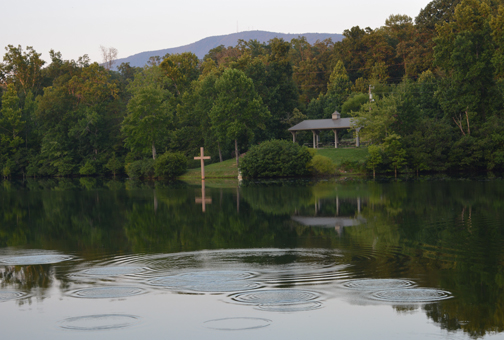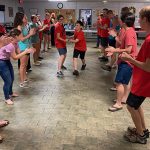Why Camp Areté?
We are on the precipice of grievous loss, and our circle of Bible churches is hardly immune.What an incredible heritage God’s people had at the time of Christ’s coming! They had the theophany of the Son of God, the covenants, the law of Moses, the service of the priesthood, the promises of God, and the magnificent example of their forefathers: Abraham, Isaac, and Jacob (Romans 9:4–5). That generation had everything going for them and then some. Yet when the Lord came, only a few recognized what God was doing and received Him as their Savior. Despite the miracles that attended the birth, baptism, and ministry of Jesus, many stubbornly refused to acknowledge Him (Matthew 11:21–24). Our own generation is at grave risk of missing the Lord’s call in the same way. They’re failing to recognized God’s provision and will for their lives.
The plight of our teenagers
Increasingly fewer American families attend church. Of those kids who do grow up actively involved in their churches, many do not take their faith with them into adulthood. In fact, most youth groups usher less than 10 percent of their kids into an active Christian faith in adulthood. Part of the problem is old-fashioned segregation. While Galatians 3:28 teaches us that “There is neither Jew nor Greek, there is neither slave nor free, there is neither male nor female; for you are all one in Christ Jesus,” in the American church teens are almost always segregated from everyone else. They are separated from the teaching and vital life of the whole church into a whirl of activities and “fun.”
An emphasis on the whole
Teaching and interaction with Christians of every age as part of the local church are the very things the New Testament tells us are indispensable to Christian holiness. Hebrews 10:24–25 exhorts us all toward a mutually interactive faith:
And let us consider one another in order to stir up love and good works, not forsaking the assembling of ourselves together, as is the manner of some, but exhorting one another, and so much the more as you see the Day approaching.
This exhortation is not just to “one another” within the youth group, young adults, or active seniors group; rather, it is to the whole group, to all members of the church family. There are dozens of similar reciprocal commands in the New Testament—to pray, encourage, and love one another—all of which refer to the entire church body.
Such fellowship is indispensable to every Christian in the local church. In 1 Corinthians 12:7, Paul marks a crucial distinction of spiritual gifts: “But the manifestation of the Spirit is given to each one for the profit of all.” A segregated teen can’t use his or her gift for the profit of all.
Finally, in 2 Timothy 4:2–4 there is a command to Timothy as a teacher of the Word:
Preach the word! Stand over (in preaching) in season and out of season. Convince, rebuke, exhort, with all longsuffering and teaching. For the time will come when they will not endure sound doctrine, but according to their own desires, because they have itching ears, they will heap up for themselves teachers; and they will turn their ears away from the truth, and be turned aside to fables.
If Paul commands Timothy to preach and teach, isn’t there an implicit command to every believer to learn “in season and out of season”?
When the day comes for young people to become independent, enter into the hostile environment of college, associate with friends who live as if there is no God, and become part of a society that grinds young Christians into sausage, it is no wonder that they fall away from church. Our generation of American churches seems to be alarmingly similar to the generation of God’s people in Jesus’ time. We are on the precipice of grievous loss, and our circle of Bible churches is hardly immune.
And so, it began …
Into this storm came the idea of Camp Areté. The camp’s founders conceived this notion of a camp to help churches carry their young people safely into adulthood as Christians who own their faith and are active in their local churches. It is our burden to help churches carry teens into adult lives in which they consider their faith as the foremost priority, and to encourage teens to play active roles within their local congregations through teaching, service, and outreach.
To achieve this goal, Camp Areté has a fourfold plan:
- Bible teaching. We’ve established a vigorous program of daily teaching. In our inaugural year, we provided more than three hours of Bible teaching every day. In 2012, we provided even more.
- Cross-generational influence. We foster biblical interaction between teens and adults. We do so not just through our counselors and counselor-in-training programs, but through every adult on staff at the camp.
- Quality friendships. We’ve established Camp Areté in a setting where campers can make lifelong friendships in the Christian faith.
- Motivation for Christian living. We instill in our campers a desire to return to their churches determined to be an integral part of their ministries and exercise their spiritual gifts.
It is with this goal in mind—arming teenagers to become active participants in the Christian body—that we prayerfully and scripturally approach camp each year. We hope that you’ll join us.


